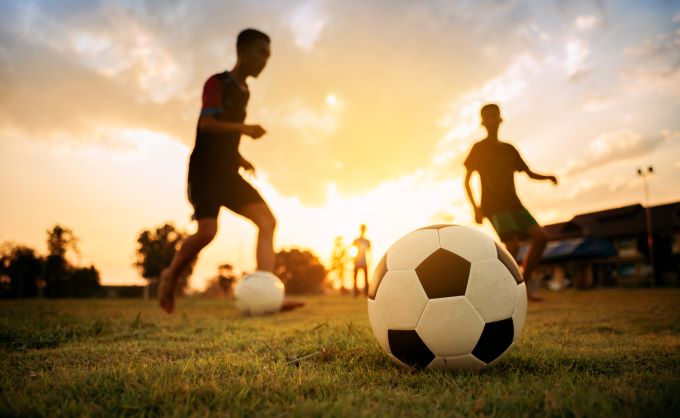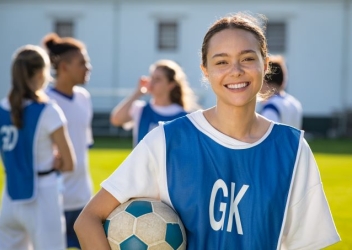Research In Action
Research In Action
Breadcrumb

We have promising news to report from the first clinical trial of a targeted pharmacologic therapy for concussion, showing branched chain amino acid (BCAA) supplementation expedited concussion recovery in a sample of teens and young adults.
While we have made tremendous strides in the management of concussion in children and adolescents over the past decade, effective approaches to hasten recovery, such as aerobic exercise protocols and visio-vestibular rehabilitation, are typically time and labor intensive. In addition, current medications for concussion are primarily focused on managing symptoms rather than expediting recovery.
No targeted pharmacologic therapy has been identified for concussion in children, adolescents, and young adults – until now.
Role of Branched Chain Amino Acids
Here at CHOP, Akiva S. Cohen, PhD, a neuroscientist in the Department of Anesthesiology and Critical Care Medicine, demonstrated in animal models across multiple studies that supplementation with a specific formulation of the three BCAAs -- leucine, isoleucine, and valine, which serve key roles in brain health, neurotransmitter synthesis, and energy supply -- can improve neurocognitive function and hasten recovery. In those studies, however, BCAA therapy had not been evaluated in human research participants.
Our Study Findings
Led by Dr. Cohen, the Minds Matter Concussion Frontier Program completed the first study of BCAA supplementation in teens and young adults with concussion. As reported this week in the Journal of Neurotrauma, we enrolled several dozen participants, age 12 to 30, within three days of their injury. The participants were randomized to one of five groups of varying doses of a study-specific formulation of BCAA supplementation (including placebo) and followed for three weeks.
We found the following:
- Concussion symptoms improved as the doses of BCAA supplementation increased. For each 500 grams of BCAA consumed, symptoms decreased on average by over 4 points on a 0-54 point symptom scale (with 0 representing someone who is symptom free).
- Physical activity improved as the doses of BCAA supplementation increased. For each 500 grams of BCAA consumed, physical activity increased by an average of 0.5 points on a 0-5 point activity scale (with 5 representing full, baseline activity).
- There was a trend toward improved sleep, specifically total sleep time and sleep efficiency (percent of time spent in bed asleep), in those taking higher doses of BCAA compared to placebo.
- The BCAA therapy was very well tolerated, with minimal adverse events (only 1 of 17 participants in the group taking the highest dose reported any adverse event, which was mild gastrointestinal discomfort).
Overall, these data are incredibly encouraging. While a larger study is needed to provide definitive evidence about the efficacy of treatment with this formulation of BCAAs before we can recommend routine usage, this is an extremely important first step in developing a targeted therapeutic for concussion, a common problem in adolescence that can significantly impact quality of life.
Read more about active rehabilitation strategies, such as aerobic exercise protocols and visio-vestibular rehabilitation.




